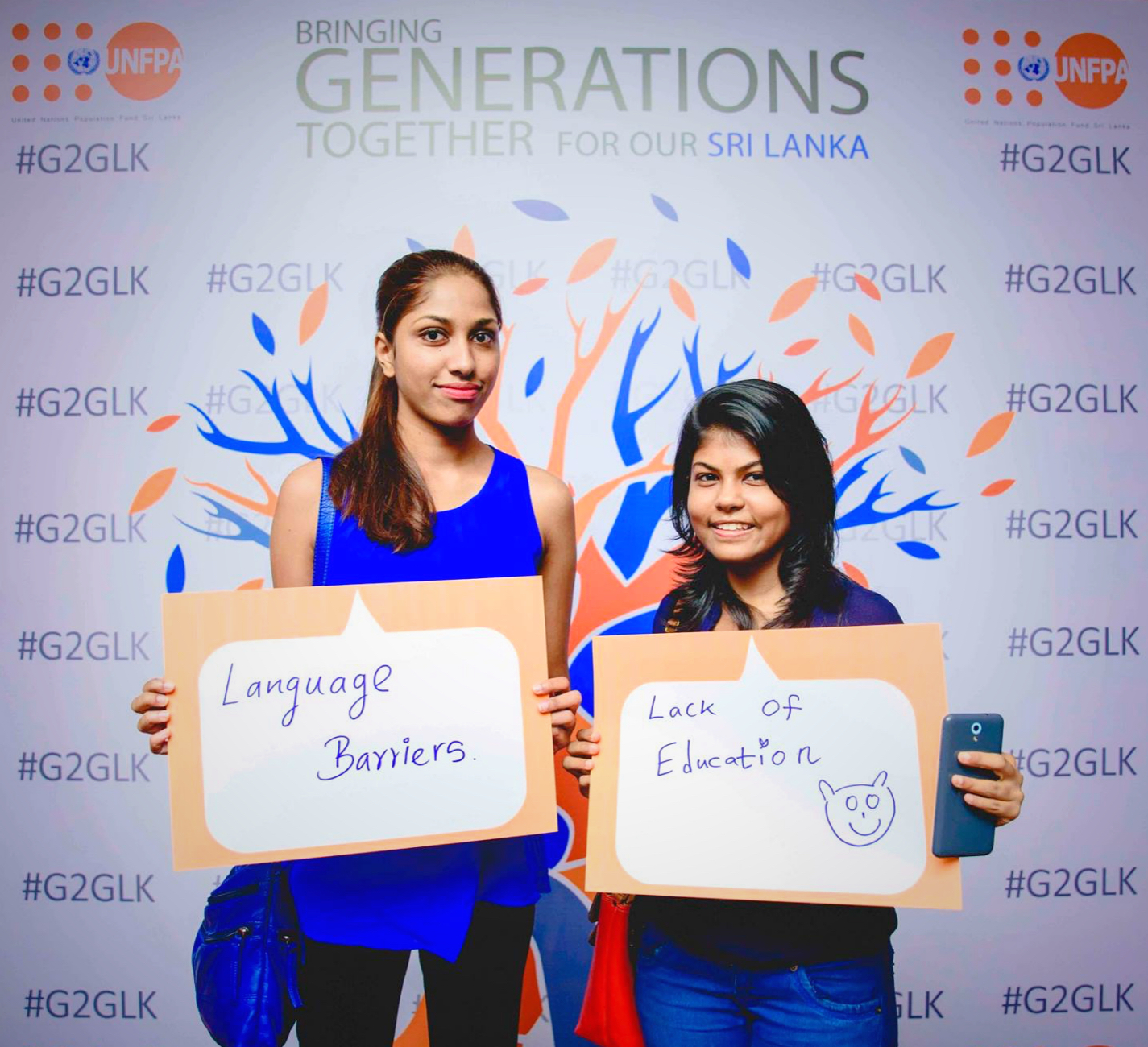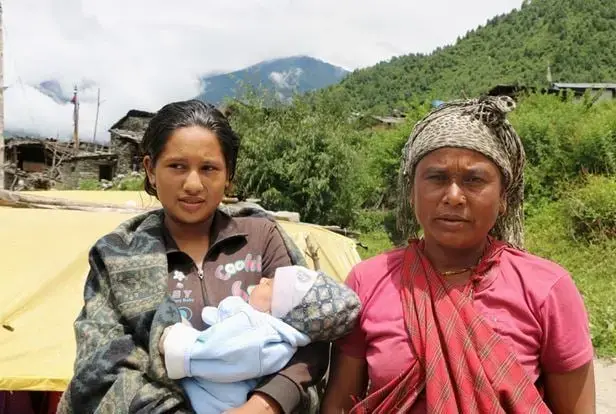Sri Lanka - Over 95 leaders from three generations have come together for a landmark forum to help Sri Lanka chart the way to middle-income status and tackle key population related challenges in the country’s development plans.
The UNFPA-hosted ‘Generation to Generation for our Sri Lanka’ conference aimed to get the most from - and the best for - all Sri Lankans, including young people, women and the elderly.
UNFPA Representative Alain Sibinaler said the dialogue is one of the main ways the organisation is supporting efforts to meet the Sustainable Development Goals in Sri Lanka. World leaders adopted the 17 global goals in September 2015. They aim to end poverty, fight inequality and injustice, and tackle climate change by 2030.
“Today’s first inter-generational dialogue brings generations together to voice their views, concerns and suggestions, which can serve as a baseline for recommendations that can help steer Sri Lanka’s future policy directions,” he said.

Young people hold up signs showing challenges they face at the UNFPA supported population and development dialogue in Colombo, Sri Lanka. Photo: UNFPA Sri Lanka
Sri Lanka is benefiting from a ‘youth bulge,’ in its population, so forum participants aimed to ensure the high number of young people help best progress the country’s socio-economic development aims.
Yet the country’s population is aging fast, and leading demographers are at odds over how long the bulge will last. Some say to 2037, others say it will end as soon as 2017.
"This is why it’s crucial that the country’s policy-makers have access to evidence based data that can be used in policies to help prepare for a growing shift in population dynamics,” said UNFPA’s Sibinaler.
Travis Gomez, Vice-President of Frontier Research, a provider of economic, industry and company research in Sri Lanka, said his organisation is betting on the demographic dividend ending next year.
“We have one year to rapidly work on strengthening our manufacturing base. We need to enable an environment where we can go about economic development but in a sustainable manner,” he said.
“In Sri Lanka, the demographic dividend started in 1992, and a lot of the working age population was not fully utilized in terms of building the manufacturing base. As a result, we have only a few more years to go and there isn’t much space to use this labour surplus to build up,” he added.
Sri Lanka needs more women in Parliament and politics, so the dialogue also aimed to engage more women in policy planning.
“What we see is that there is very strong resistance among men and women to accept women as leaders, even though women are highly involved in politics,” said Aaranya Rajasingam, who works to get more women into parliament and politics for the Regional Centre for Strategic Studies in South Asia.
“We are confronted by this strong resistance in allowing women to come into politics because they feel she does not deserve that place. The reasons given are usually that she has taken 2 or 3 years off to have a child, she didn’t participate in these events, she couldn’t come, so why should we promote her as a candidate?” said Rajasingam.
In the third and final section, Shyama Salgado, National Programme Coordinator for the International Labour Organisation in Sri Lanka, highlighted the need for young people to get the right tools and training to get work fast after study, and to meet their full potential.
"There is a distinct difference between qualification and education,” she said. “Qualifications are required in an academic or technical environment, but education is what you get in your school, as well as the work place and at home.”
“This is why graduates cannot find work. They can’t market themselves at job interviews,” she added.
The forum was “the first in a series that will try to tackle how Sri Lanka’s young population is a driving force to determine the country’s middle income status,” said UNFPA’s Sibinaler.
The next, in early 2016, will focus on sexual and reproductive health and other issues



